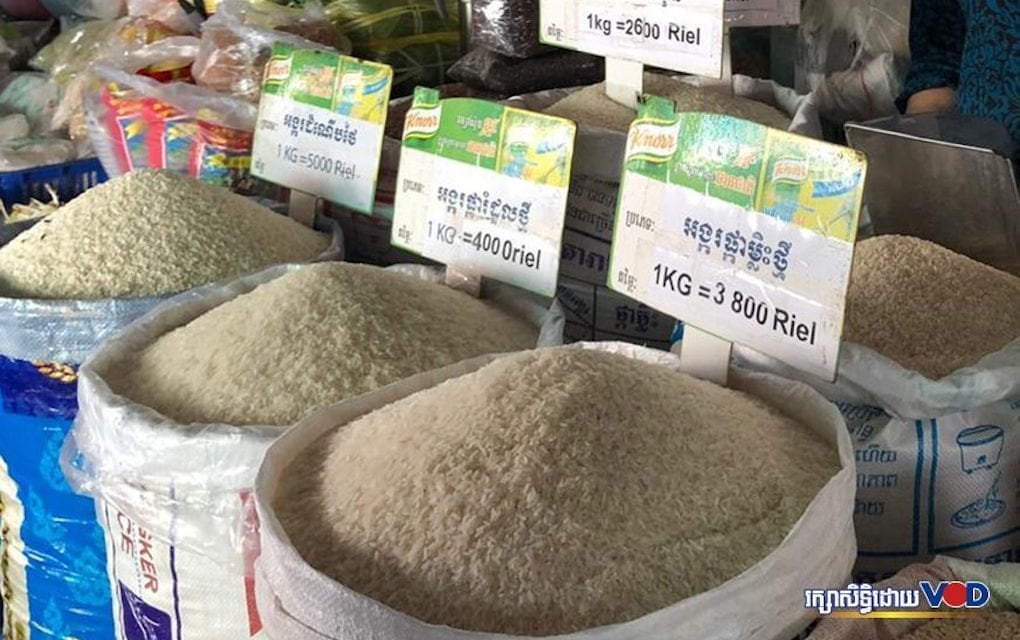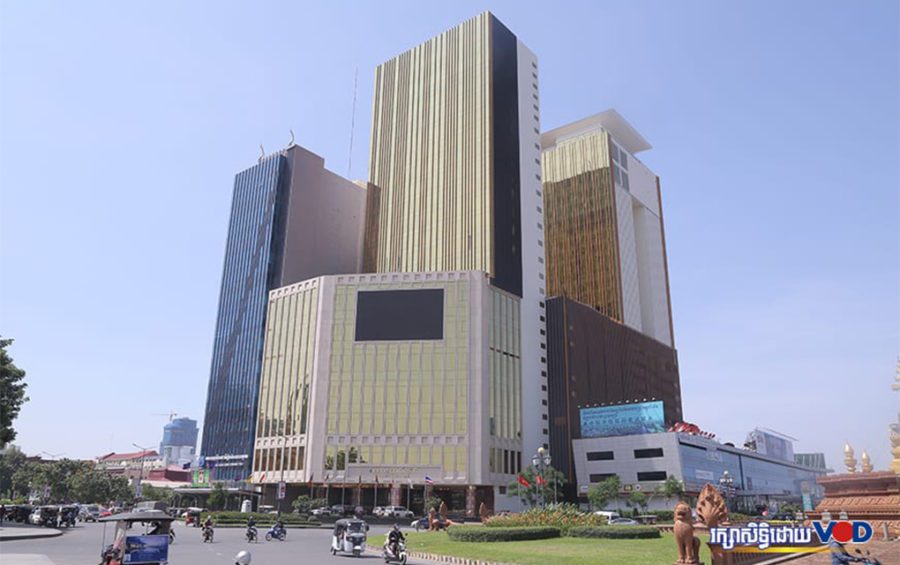The nation’s casino and rice industries are the latest sectors to face restrictions as part of the government’s response to the Covid-19 pandemic, leaving some casino workers worried about lost income and the rice sector largely unfazed.
In a speech to the National Assembly on Monday, Prime Minister Hun Sen announced that all casinos must be temporarily shuttered by Wednesday.
“Close all casinos both in Phnom Penh and across the country. Close them all,” Hun Sen said. “All casino owners should find a solution for their workers during the suspension of their businesses.”
The prime minister also tasked the Finance Ministry to work with casino owners, whose businesses would be exempt from paying income taxes during the closures. However, Hun Sen did not outline any plans for compensating casino employees, as he did for garment workers last month.
The premier’s notice came as the Health Ministry confirmed four new cases of the respiratory disease on Monday, bringing the nation’s total infection tally to 107, including 23 people who have recovered.
Lim Dany, who has worked on the gaming floors in the NagaWorld hotel and casino in Phnom Penh for more than 10 years, said she hopes to receive the same 60 percent partial salary that has been offered to suspended garment workers, or at least an extension on loan payments, which has been proposed by the government but has yet to materialize.
“I would like the company to follow the [compensation package for] garment workers,” Dany said. “If we don’t work, we don’t have income so we have nothing to spend on food.”
She also said she wanted her company to allow all employees to return to work at their current wages when the situation improved.
Chhim Sithar, president of NagaWorld’s employee union, said union and company representatives planned to meet on Tuesday to discuss compensation for suspended workers.
Sithar said the union will ask for full compensation for the first month of suspension, with reductions to 70 percent and then 50 percent of salaries if the casino is closed for two additional months.
While the union leader said she hoped to preserve full benefits for workers currently on or about to go on maternity leave, she acknowledged that in this situation, the union didn’t have any legal regulations to rely on in order to pressure the company.
“We can only rely on the mercy of the company,” she said.
Sithar added that she was glad to have casinos closed to avoid health risks, but she was disappointed that the government hasn’t announced support for workers.
Gerard Chai, head of investor relations for the Hong Kong-listed parent company NagaCorp, did not respond to emailed questions.
In its annual report from last year, the company recommended an 80 percent payout of net profits from the second half of 2019 to shareholders, higher than dividend payouts of 60 to 70 percent from 2014 to 2018. NagaCorp also said it expected the coronavirus outbreaks to be “short-lived.”
In addition to the casino closure announcement, Hun Sen said a draft law concerning state of emergency declarations would be discussed this week, though he reiterated comments from last week that he did not yet intend to shut restaurants, coffee shops, markets or factories given Cambodia’s current rate of infection.

Hun Sen also announced a suspension on exports of milled white rice and paddy rice to maintain local supply, while fragrant and jasmine rice, which is less popular domestically, could continue to be sold internationally.
The restriction will go into effect on April 5, allowing producers time to sell to Vietnam and Thailand, the prime minister said.
He said he would ask the Finance Ministry to mobilize funds so rice producers can buy more paddy for domestic production and consumption.
Lun Yeng, secretary general of the Cambodia Rice Federation (CRF), said the industry would be only slightly impacted by the measure, since nearly 90 percent of rice exports were fragrant or jasmine varieties.
Yeng said CRF had proposed the export ban on white and paddy rice in order to ensure the country wouldn’t experience shortages. After assessing rice stocks, Yeng said the nation should be sufficiently supplied until the next harvest season starts in June and July.
“We want to be mindful of the impacts [on consumption] if Covid-19 stays longer, because maybe the people will consume more rice,” Yeng told VOD.
Rice for export, which reached about 620,000 tons last year, was a small portion of the total 7.9 million tons produced in 2019, the Khmer Times reported in January.
However, rice exporters have noticed an uptick in sales in the first quarter, as Covid-19 spread around the world, Yeng said.
In February, the amount of exported Cambodian rice increased 63 percent to 86,049 metric tons from February 2019, and preliminary numbers suggest Cambodia’s total exported rice sales doubled this month compared to March last year, according to Yeng.
“I think many food items are not being produced [in foreign markets], such as some vegetables, wheat or others,” he said. “They’re not being produced as much in the short term, but rice is still in stock to supply every household.”













